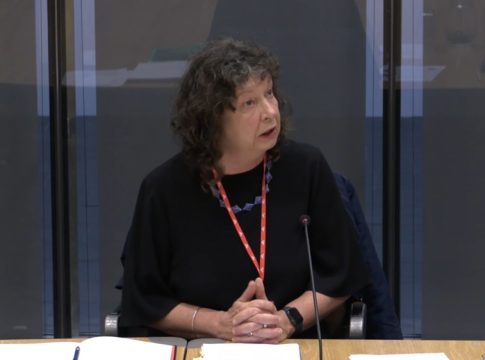Understanding the Mental Health Impacts of University Changes
In a recent discussion at Cardiff University, Vice Chancellor Wendy Larner addressed concerns regarding the mental health of academic staff amid significant organizational changes. The announcement of proposed job cuts affecting 400 academic roles has led to increased anxiety within the university community. This situation emphasizes the profound effects that institutional decisions can have on individuals’ emotional well-being.
Acknowledging Personal Stress
Professor Larner pointed out that while the changes have initiated discussions about staff well-being, the stress experienced by many staff members appears to stem largely from personal issues rather than workplace conditions. This distinction underscores an essential consideration in mental health—recognizing that personal life challenges can significantly impact professional performance and emotional health.
The University and College Union (UCU) released survey results highlighting alarming levels of stress among staff, with some even reporting thoughts of self-harm. Such serious revelations prompt a critical reflection on the support systems in place within educational institutions.
Commitment to Staff Well-Being
In response to the concerns raised, Professor Larner emphasized the university’s ongoing commitment to monitoring staff well-being through systematic HR processes. While data indicated consistent stress levels, she acknowledged the need for a more compassionate approach. This is vital in times of organizational change when feelings of uncertainty can easily escalate.
Key actions that Cardiff University is undertaking include:
- Establishing a joint working group with the UCU to explore further support measures.
- Providing explicit signposting for well-being resources available to staff.
- Offering dedicated support sessions for those affected by the proposed cuts.
These initiatives highlight the importance of proactive communication and the availability of resources to enable individuals to navigate challenging periods.
The Importance of Genuine Dialogue
The conversation within the university has involved not only administrative leaders but also academic staff, who have voiced their concerns regarding the restructuring plans. Engaging meaningfully with those impacted fosters a more collaborative environment, essential when addressing complex issues such as job security and mental health.
The concept of social partnership—where both leadership and staff can contribute to decision-making—can help restore trust and morale within the academic community. When stakeholders feel heard, they are more likely to support necessary changes, even when they are difficult.
Navigating Challenges with Empathy
As Professor Larner noted, the announcement of job cuts is never easy, especially when informing staff that their positions may be affected. The emotional weight of these conversations underscores the need for compassion and understanding from university leadership.
Mental health professionals advocate for a holistic approach to well-being that encompasses both personal and work-related factors. Strategies might include:
- Open communication: Regular check-ins can help individuals express their concerns and feel supported.
- Access to mental health resources: Ensuring that staff are aware of available counseling services can alleviate some distress.
- Creating a culture of understanding: Encouraging peers to support one another can foster a sense of community.
In navigating these tough times, it’s crucial to remember that change is often fraught with difficulty, but with thoughtful engagement and a commitment to well-being, institutions can emerge stronger.
As calls for compassion and support grow louder, educational leadership must prioritize the mental health of their communities, creating environments where individuals feel valued and heard. Embracing this ethos not only promotes personal resilience but also strengthens the entire organization, paving the way for a healthier, more supportive academic landscape.

Covers wellness, nutrition, mental health, and daily life tips.
Bio: Talia brings a background in health journalism and holistic living to help readers live better, one tip at a time.

